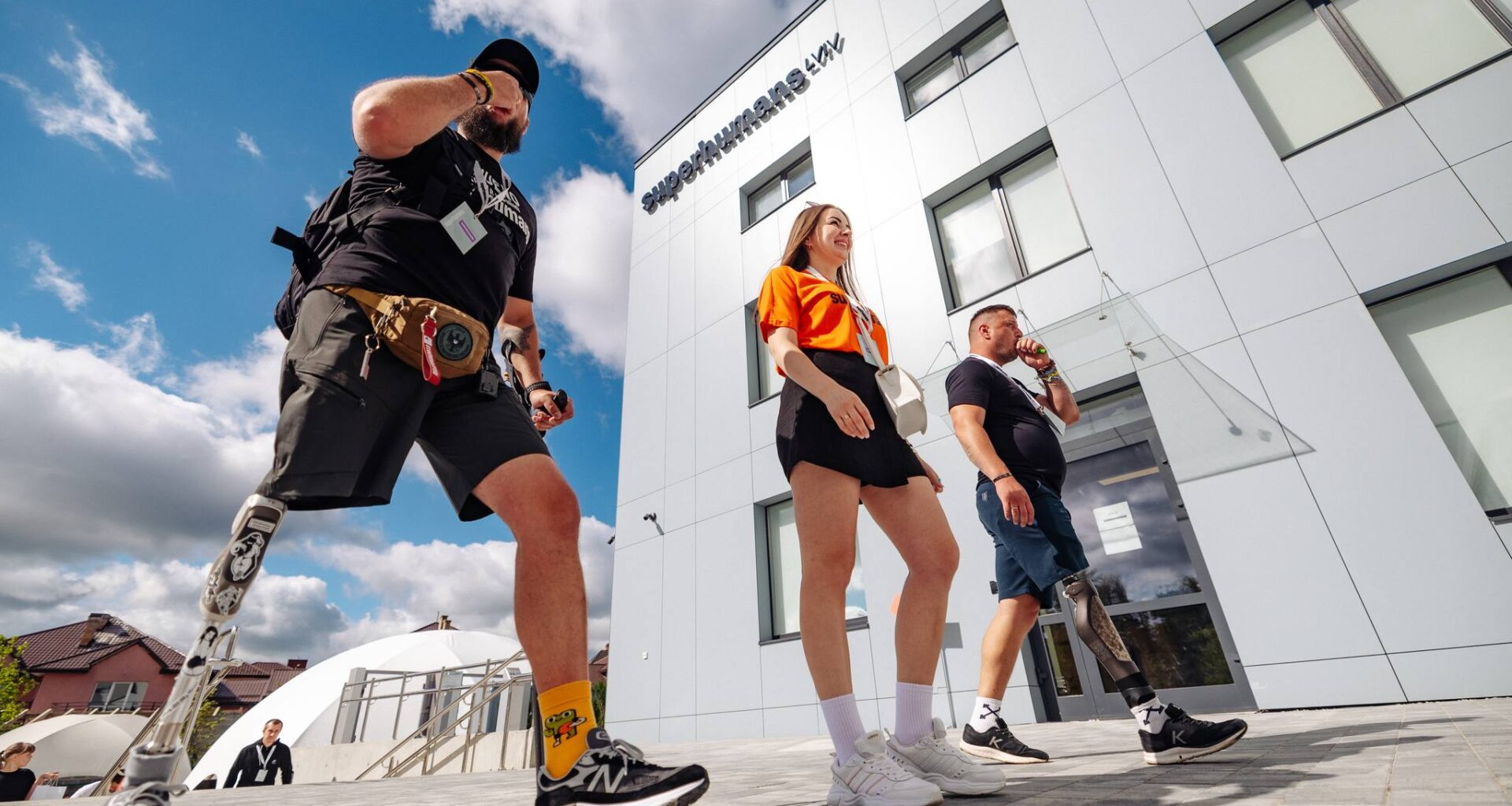German doctors claimed Denys would never walk again.
A war injury had cost the Ukrainian soldier three limbs – a case Europe's top medics found daunting.
It turned around when Ukraine's first-rate facility undertook his recovery, setting a world-class standard for war rehabilitation.
According to Ukraine's Ministry of Health, as of April 2024, some 20,000 people need prosthetics due to the war, with numbers expected to rise due to the ongoing hostilities and landmine threat. The actual figure could be even higher, as many have lost more than two limbs, requiring several prostheses.
The Superhuman Center tackles this formidable challenge, providing cutting-edge prosthetics and rehabilitation for Ukrainian soldiers, civilians, and children injured in the war.
Among them is Denys Kryvenko, whose drive to recover found a match in the center's top-notch expertise.
One-in-a-million recovery case
"Look, there goes Denys," says Andriy Vilenskyy, medical director of Superhumans, pointing out the patient with one of the most challenging cases – triple amputation.
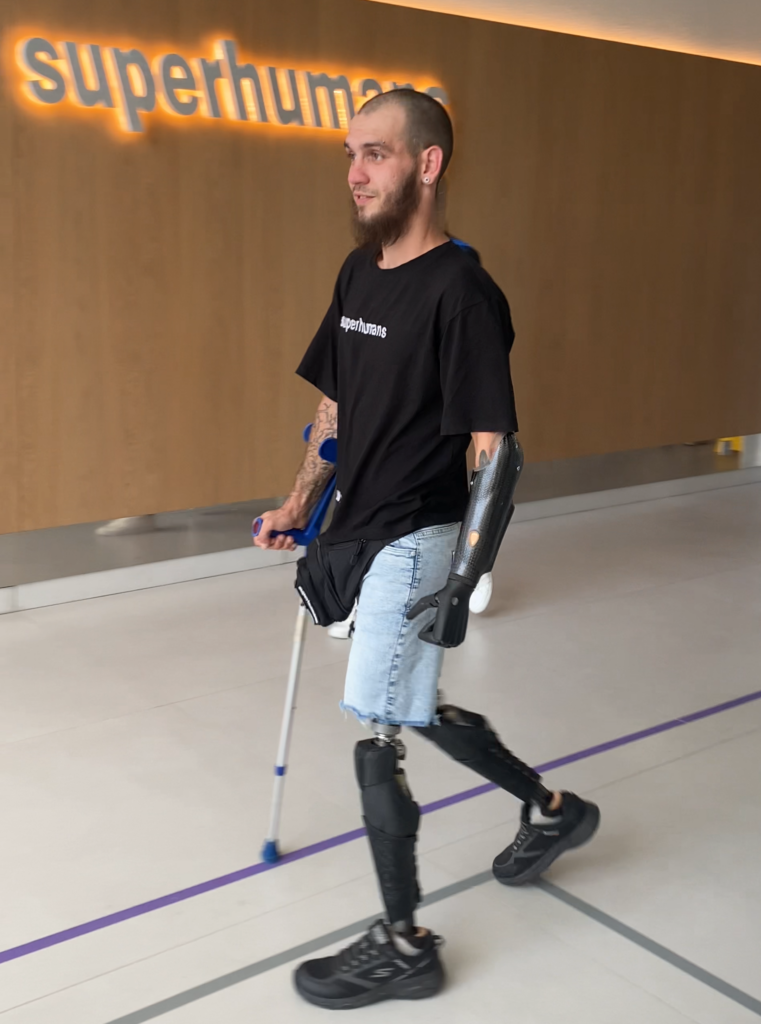
Denys Kryvenko joined the 57th Infantry Brigade in the first weeks of the full-scale invasion after making sure his mother and younger siblings were safely evacuated. In January 2023, he came under fire while defending the vital lifeline to Bakhmut, a hotspot of the war at the time, from Russian forces.
When they came under Russian fire, Denys and his comrades were covering the retreat of Ukrainian units from the headline-grabbing battle for Bakhmut.
In that firefight, he lost both his legs and an arm.
"I was still conscious. My comrades put me on a stretcher and carried me 2.5 kilometers (1.2 miles) to the evacuation point," Denys recalls. "On the way, I was laughing and crying, saying goodbye to them and singing the Ukrainian anthem."
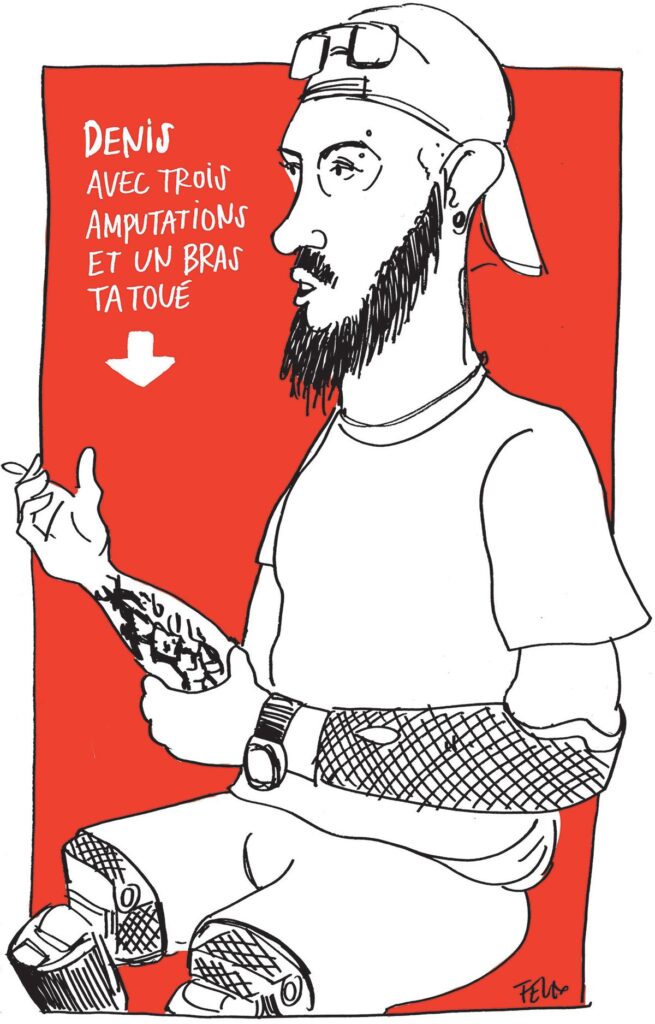
About five days after resuscitation, Denys started trying to sit up and then filled out an application to the Superhuman Center.
The veteran arrived at the facility in the winter of 2023, when it first opened. In March, he left for Germany with the center's prosthetists, who went there to learn advanced prosthetic techniques.
The Superhumans' medical doctor recalls that Denys's case threw European prosthetists for a loop.
"German doctors said that it was probably impossible for Denys to walk," Andrii Vilenskyi told Euromaidan Press. "It was the first time our colleagues in Germany said it was impossible, but we decided to give it a try with him — and it worked."
Vilenskyi acknowledges that Denys's recovery was an uphill battle.
"We have accomplished a lot in these one and a half years," he adds. "You've seen for yourself that he walks on his own. He lives an active life now."
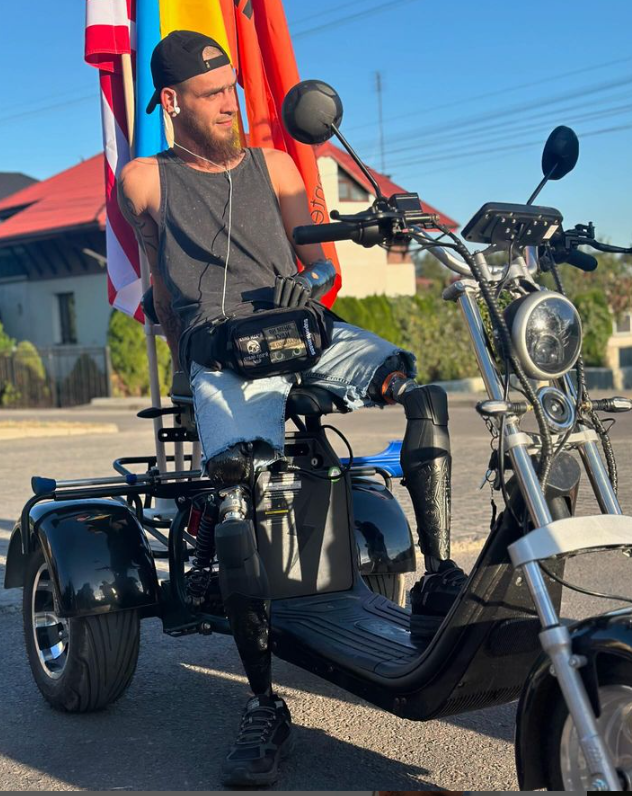
Empowering to live anew
The Superhumans Center stands out by aiming to give patients a life more fulfilling than before their injuries. Instead of just fitting them with prosthetics, the facility works to arm them with the motivation and skills they need to fully embrace their new, active lifestyle.
Opened in 2023, the Lviv-based facility offers a full range of services, including reconstructive surgery, hearing restoration, psychological support, and rehabilitation. It also operates its own prosthetics lab, which tailors customized prostheses from scratch to meet each patient's needs.
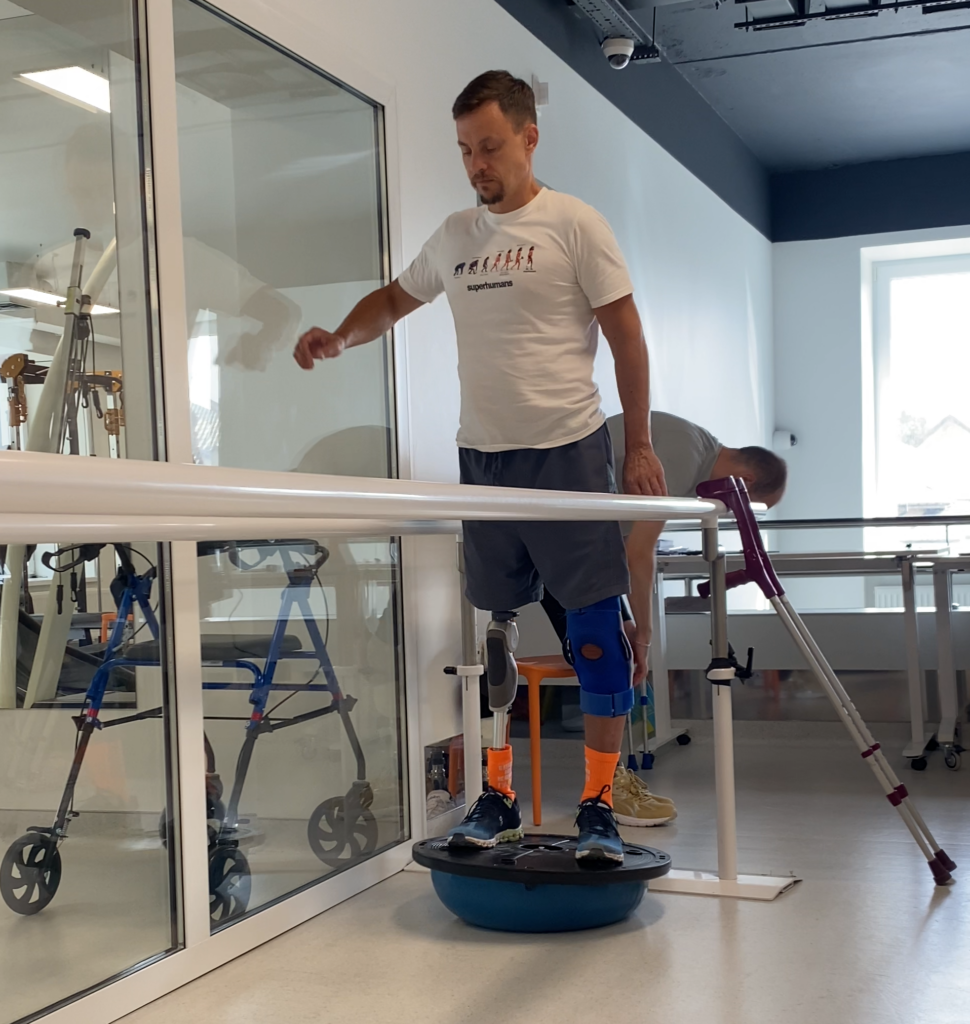
An educational center and dentistry are set to launch soon.
"We also socialize patients — we help them find new roles in life," said the center's CEO, Olha Rudneva, in an interview with Forbes. "A person doesn't need a leg or an arm just to have them; they need them to go somewhere and do something."
"This is no longer just a prosthetics clinic; it's a war trauma clinic," adds Andriy Stavnitser, the facility founder. He explains that the center deals with widespread war traumas, including limb loss, concussions, and hearing loss.
The entire complex is fully accessible, and all services are free of charge. Philanthropists fund both the construction and ongoing operation of the center.
About 45% of the center's budget comes from Howard G. Buffett, chairman and CEO of the Howard G. Buffett Foundation, which has committed over $800 million to Ukraine since 2022.
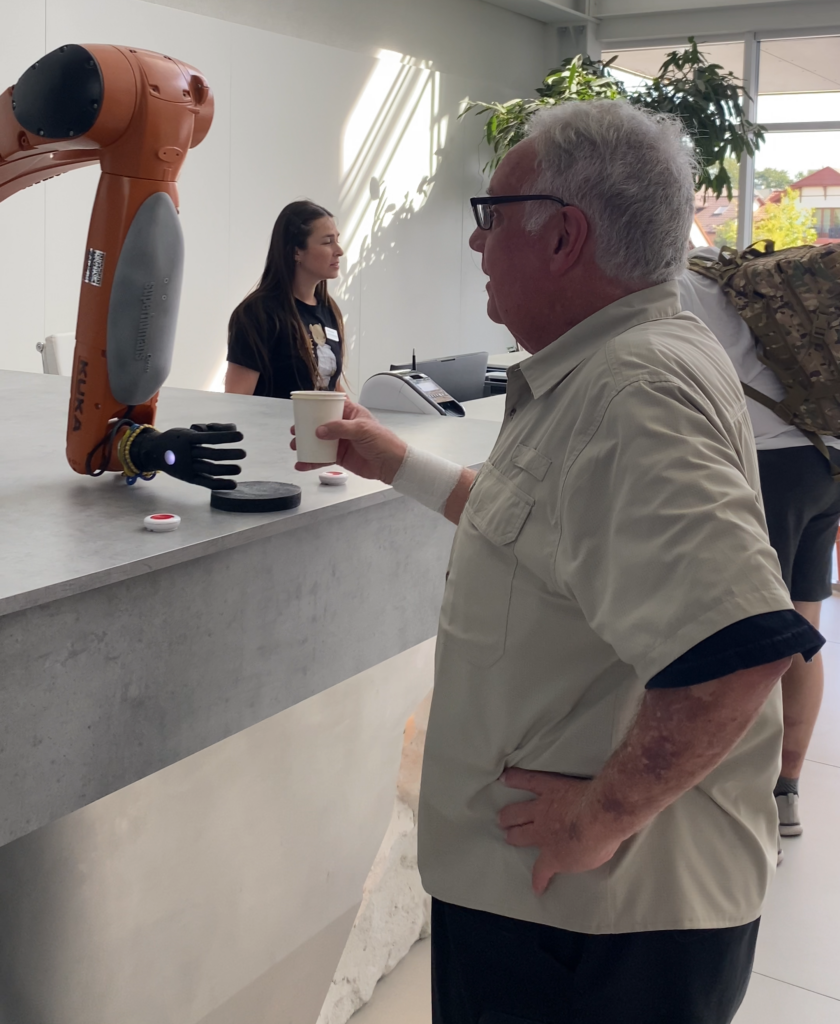
In an interview with a Ukrainian broadcaster, Buffett explained his decision to invest in the center: "This is a place where people can gather their strength to start a new life. Some of the stories are incredible."
"This is no longer just a prosthetics clinic; it's a war trauma clinic."
Andriy Stavnitser, Superhumans founder
Veteran Denys Kryvenko, now a first-contact specialist at the center, plays a key role in shaping this image. Having been through the rehabilitation process, he now often greets new patients and shows visitors around, using his personal experiences to uplift others.
Howard Buffet is one of those who was deeply moved by his story.
"When I first saw Denys, he had no prostheses. Now, he rides a motorcycle," the philanthropist said as the veteran arrived to give him a tour of the facility. "Here, they have helped people who are essentially starting their lives anew. And this new life has more meaning than the one they had before."
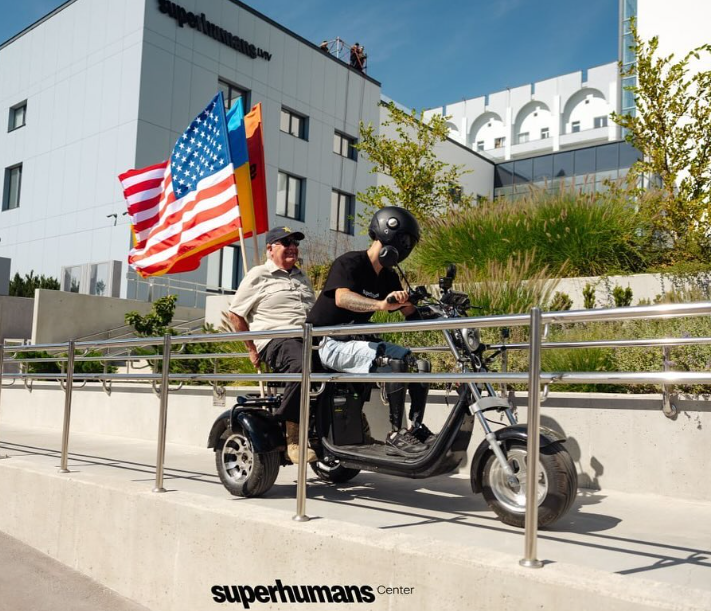
Rehabilitation in crisis mode
Despite the Superhumans' remarkable efficiency, the ongoing Russian invasion continues to challenge the Ukrainian medical community, particularly in the fields of prosthetics and rehabilitation.
"We're facing issues with upper limb amputations and multi-amputations – when not one, but two, three, or even four prostheses are required," says Andrii Vilenskyi.
The high amputation rate among servicemen is mainly caused by extended evacuations from the front lines, which can sometimes exceed 9-10 hours.
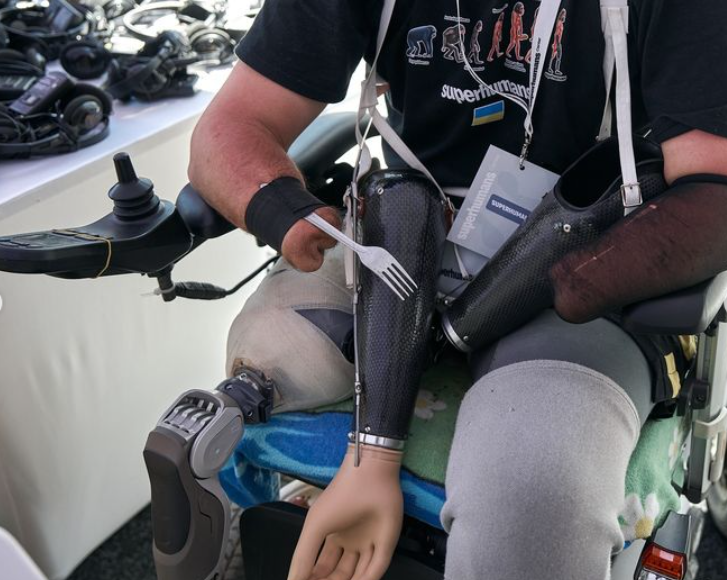
Vilenskyi notes that, in peacetime, 90% of patients had lower limb amputations at the foot or shin level, typically from conditions like diabetes. Now, about 30% of patients at the center have upper limb amputations.
"This shift has exposed the shortage of specialists trained to handle upper limb cases," he explains.
Multi-amputations pose an even greater challenge. "These patients require long-term rehabilitation," Dr. Vilenskyi notes, pointing out the increased need for rehabilitation specialists. The center actively trains young professionals and collaborates with international teams to tackle this issue.
In February 2024, the center rolled out a facial prosthetics service to address a particularly challenging aspect of war injuries.
"We were honestly scared of it because dealing with these patients is emotionally demanding," Olha Rudneva admits.
Facial injuries often go beyond cosmetic issues, affecting crucial functions like breathing, speaking, and eating.
Bohdan, a 24-year-old soldier, embodies the challenging cases the center handles. Having served in various voluntary military units since 18, he joined the regular Ukrainian forces in 2022.
His injury came from friendly fire when he stepped in to stop a fellow soldier from shooting himself.
"Since I was the commander at the position, I had to go to him, and he shot me," Bohdan recalls. The bullet entered from below and blew through his cheek, causing extensive damage.
"My tongue was torn in three parts. The third and fourth facial nerves were damaged," the soldier says
After three months in a Rivne hospital, Bohdan received a removable prosthesis, which was a poor fit.
"It was so uncomfortable it kept falling out with the slightest movement. I went back to [the positions in] Bakhmut with that prosthesis," he says.
In search of a better solution, Bohdan turned to the Superhumans Center, where he underwent a complex French procedure. Doctors transplanted bone, muscle, and blood vessels from his leg to reconstruct his jaw.
Now, Bohdan is in rehabilitation following the transplant and looks forward to reuniting with his wife, who is expecting their first child.
Superhumans Center aims to give patients a life more fulfilling than before their injuries by arming them with motivation and skills to embrace their new, active lifestyle.
Unlocking the will to walk again
Patients who stay in the center for extended rehabilitation benefit from a host of cutting-edge facilities, including a specialized pool designed for those with multiple amputations.
"We start with pool therapy for patients with limb pain," explains Nestor Babskyi, a hydrotherapist at the center. "Water reduces pain, allowing us to begin treatment early. Later, we move on to more intensive exercises."
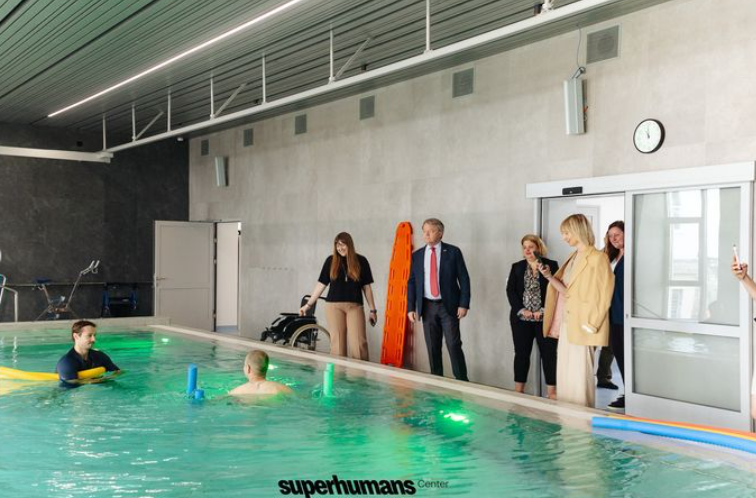
The center's all-encompassing approach goes beyond just physical therapy. It includes activities like wheelchair basketball and golf outings to aid recovery and lift spirits. Even the center's unique scent is thoughtfully chosen to create a welcoming atmosphere.
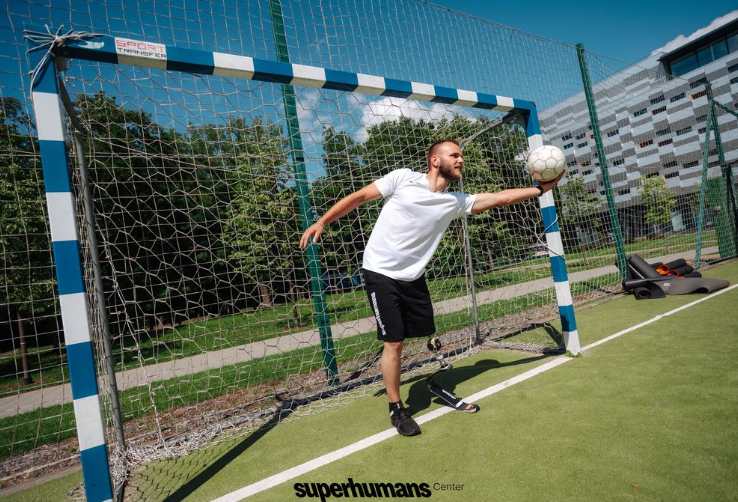
Despite this supportive environment, not every patient can start rehabilitation at the center. Each candidate undergoes a thorough evaluation, including medical screening, motivation assessment, and diagnostics, before they are cleared for admission.
A team of physiotherapists, psychologists, social workers, and first-contact specialists work together to help patients set and achieve their goals.
"It's the patient's job to find a reason why they want to walk and what they want to do," Olha Rudneva says.
Despite the center's commitment to helping as many patients as possible, they sometimes have to turn applicants away, she says. This typically happens when a patient fails the initial assessment or lacks the motivation.
"We do not go looking for patients; our superhumans find us," CEO Rudneva said. "We use the donors' funds and must spend them as effectively as possible."
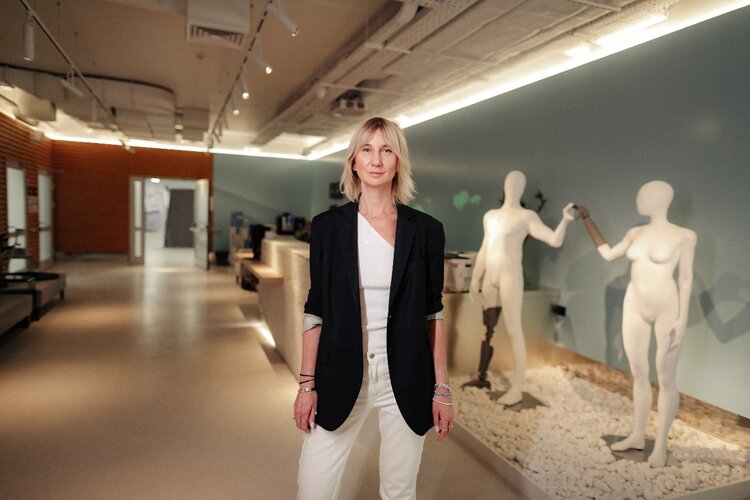
The center tells mentally unstable applicants or those struggling with suicidal thoughts or addictions that they have to tackle these issues before starting rehabilitation.
Lifelong rehabilitation demands
The Superhumans Center in Lviv serves 70 patients monthly, with its running costs reaching $1 million. In an interview with Forbes, CEO Olha Rudneva noted that a high-quality prosthesis can range from $51,000 to $100,108.
Despite these hefty expenses, the center's impact stretches far beyond these figures. So far, the Lviv facility has reached nearly 3,000 patients, providing a wide range of services – from rehabilitation and psychological support to prosthetics and reconstructive surgery – to military and civilians alike.
The center's care reaches diverse individuals, like a civilian volunteer from the frontline Kostiantynivka, who remained in the embattled town to bake bread for the Ukrainian military.
She was carrying a cake and flowers on her mother's birthday when a cluster munition struck her. The explosion severed the woman's leg, but the heat of shrapnel sealed her blood vessels, keeping her from bleeding out.
When the injured civilian arrived at the Superhumans Center, she was weighed down with regret and shame, feeling unworthy of being treated alongside soldiers, the founder recalls.
Everything changed when a soldier who aided in her rescue told her words that struck a chord with the center's mission: "Everyone is fighting their own war. We have ours, and you have yours. It doesn't matter where you lose a limb – if you're standing for something, you're at war too."
Current solutions for future challenges
Despite the Superhumans' efficiency, its founder, Andrii Stavnitser, remains realistic, anticipating the growing need for their services over time. "As patients lose or gain weight, or as their needs change, they'll require adjustments or new prostheses, which is aggravated by the ongoing hostilities and landmine threat.
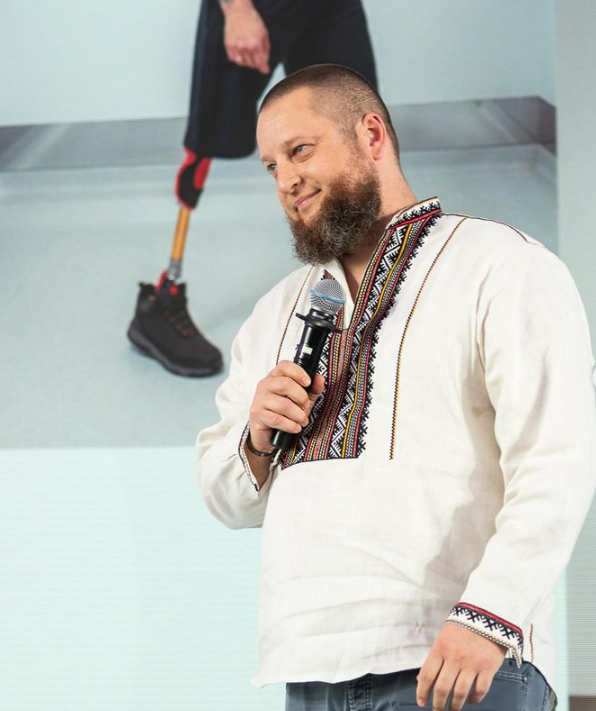
Superhumans with the prosthetics on the first Superhumans reunion. Credit: Superhuman Centre via Instagram
"When you're amputated, it's for your whole life," he explains. "This isn't just a short-term issue for military personnel; it's a long-term challenge for our entire society."
The facility's authorities plan to open more centers in Ukraine, particularly in Odesa and Dnipro, some of the nation's largest cities. Andrii said these facilities may not match the scale of the Lviv center, but they will play a crucial role in providing accessible care to patients nationwide.
To illustrate this point, the founder gestures toward Serhii, a patient who has undergone two amputations and is awaiting his second prosthesis. If the Superhumans network expands, Serhii could receive care closer to his hometown in Chernihiv Oblast, 330 miles from Lviv.
"This network of centers will make ongoing care and adjustments much more convenient for patients like him," Andrii Stavnitser adds. “We're not just treating injuries; we're rebuilding lives."
CEO Olha Rudneva resonates with this sentiment, shedding light on what it truly means to be a superhuman in wartime Ukraine:
"Running marathons, giving birth to children, conquering peaks, winning sports competitions around the world, surfing, convincing congressmen to give Ukraine aid," she lists, recalling the patients' post-recovery achievements. "Doing more with less and proving to everyone that the limits are only in our heads."
Read more:

